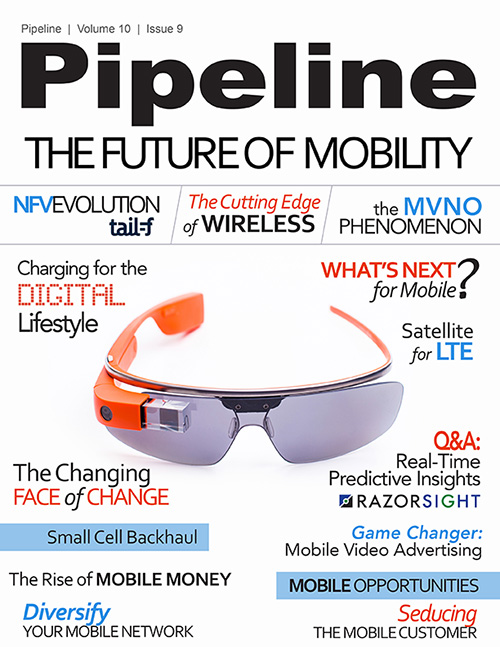The Rise of Mobile Money
However, operators and service providers haven't given up on the promise of NFC and are offering all sorts of services to entice customers and retailers to use NFC and other mobile wallet technologies to help the market mature more quickly.
In October of 2013, Sprint announced its Sprint Pinsight service launch aimed at making it easier for app developers to add NFC to their branded mobile applications.
“Pinsight Touch provides businesses with the flexibility to offer innovative technologies without having to compromise their brand and their relationships with customers,” said Evan Conway, vice president, monetization and strategy – Pinsight Media+. “Transit, access and payment companies will now have a better way to connect with customers via their own mobile apps and services.”
Orange and Visa Europe also announced the launch of Orange Cash in late 2013, which both companies hope will raise awareness of NFC. Orange customers can download an app to top up a prepaid Orange Cash account, which can then be used to make purchases.
"Paying with your smartphone is a new function which will take off due to its practicality in everyday life." Thierry Millet, Vice President of Mobile Payments and NFC, Orange, says in a company press release. "By launching Orange Cash, we want to accelerate the adoption of mobile payment generally and, of course, among our customers via a simple and secured solution, which offers many advantages. The partnership with Visa Europe increases our customers’ confidence and ensures acceptance of Orange Cash at a large number of sales points in France and abroad.”
Cryptocurrency
Can network operators eventually dis-intermediate banks altogether? That's the idea behind Bitcoin, which leverages both NFC and QR code technologies. Bitcoin has been around since 2009, but only just recently started to gain traction—and value. In fact, right now, one Bitcoin is worth over $800.
Cryptocurrency is also making its way into pop culture. Seven programmers recently released what they called “Coinye West,” which they hoped would be a less techie and more mainstream alternative to Bitcoin. While the whole idea seemed a bit cheeky--the coins even featured a cartoon poking fun at the rapper--the enterprise might have some merit. West wasn't amused and quickly unleashed a fury of lawyers on the project to shut it down. British pop songstress Lily Allen also recently talked about her regret over not accepting a Second Life gig that promised to pay hundreds of thousands of Bitcoins. She declined by saying “as if.” Bummer. In today's market 100,000 Bitcoins would be worth more than $91 million. After she revealed the story in a Tweet, Allen tagged the message #idiot #idiot.
Indeed. But as anyone in the technology business can attest, it's hard to pick a winner every time.
Mobile wallets and mobile transactions will be the way we engage in commerce for years to come. There are many moving parts that are still struggling to come together to help mobile money truly reach the mainstream. There are certainly a few technological hurdles to cross; but, most importantly, in order for mobile money and mobile wallet services to reach their true viability, the consumer and retailer have to be comfortable exchanging digital currency rather than cash, check or credit. The evolution is about changing how to engage in business. From trading sea shells and buckskins to bumping smartphones is a pretty big shift in paradigm. However, those who ignore the reality are likely to find themselves saying #idiot #idiot sooner or later.



















